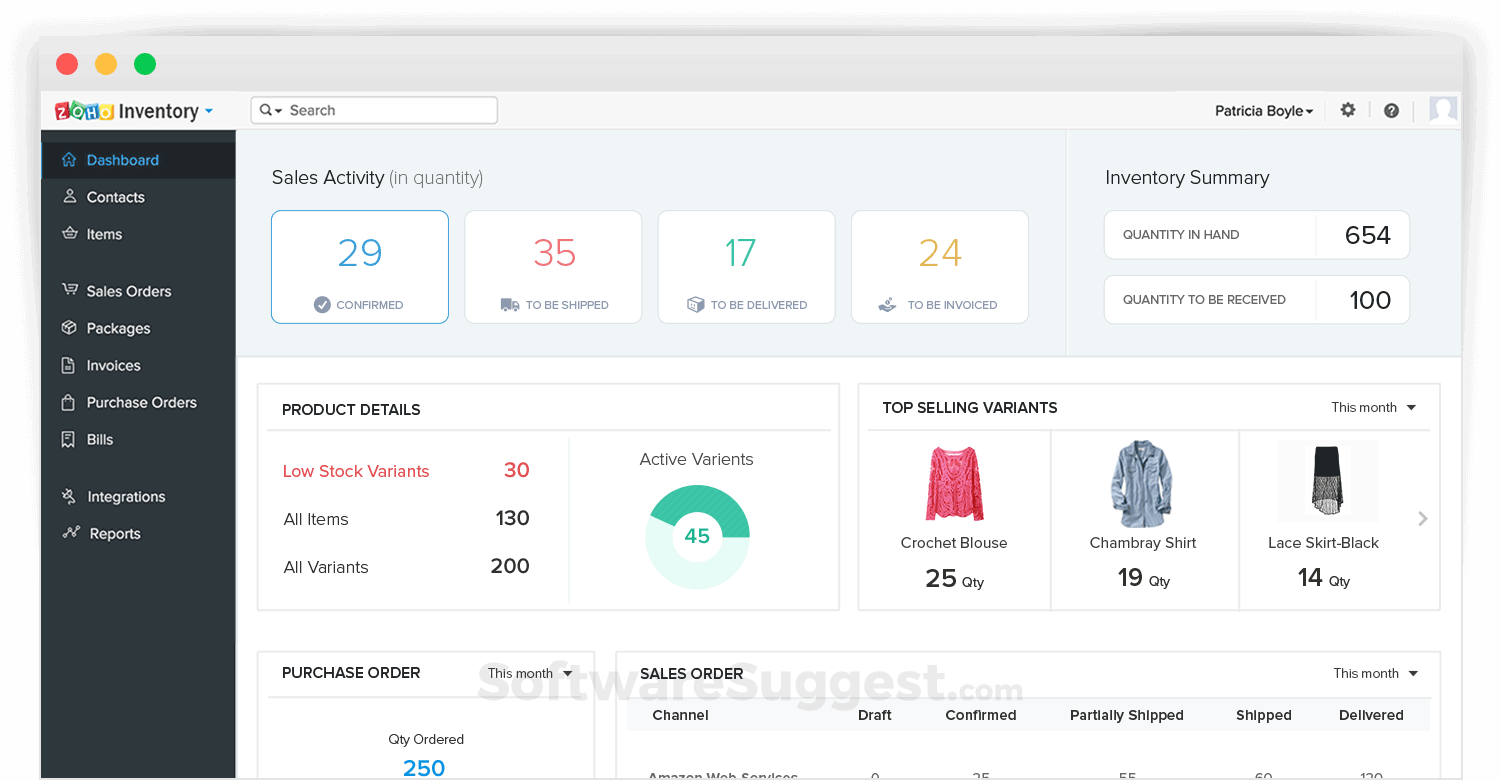As an emerging yet remarkably potent tool, AI is transforming the way ecommerce businesses operate, from personalizing customer experiences to optimizing supply chains.
As an ecommerce business owner or manager, you know how critical it is to stay ahead of the competition. By leveraging AI, you can streamline your operations, boost efficiency, and ultimately drive more sales and revenue.
In this article, I’ll explore the impact of AI on streamlining ecommerce operations, providing you with valuable insights and practical examples.
Top 4 Ways in Which Artificial Intelligence Streamlines Ecommerce Operations
Here are four ways AI can help improve efficiency and deliver a better customer experience for your ecommerce business.
1. Enhanced Customer Experience
One of the most significant impacts of AI on ecommerce is its ability to enhance customer experience and lengthen customer lifecycle.
Imagine giving your customers a personalized shopping journey tailored just for them, no matter which device they use. That’s exactly what AI can do.
By analyzing a customer’s user data, such as browsing history and purchase behavior, AI algorithms can provide personalized product recommendations across all touchpoints, including email, website, and mobile app.
This means that every interaction they have with your brand feels like it’s designed specifically for them, increasing their likelihood of buying from you.
But AI’s impact on customer experience doesn’t stop there.
72% of marketers use AI for marketing. They say AI technologies like chatbots enable them to tailor and customize customer interactions.
AI-powered chatbots can:
- Provide 24/7 assistance to customers, even when your human team is unavailable.
- Handle multiple customer inquiries simultaneously, reducing wait times and improving the overall customer experience.
- Quickly answer common questions, freeing up your staff to focus on more complex issues.
- Personalize interactions based on customer data, providing better customer experiences.
For example, Sephora’s chatbot allows users to scan an object, celebrity’s face, or image, for instance, and get a list of matching makeup products. This enhances the customer experience and streamlines its customer support operations.

With AI-powered customer support, you can ensure that your customers receive prompt and helpful assistance, even when your team is unavailable. This improves customer retention and satisfaction and frees up your staff to focus on more complex tasks.
Sharing updates about discount offers and new product arrivals offers in most appropriate way with the help business text message apps help you to maintain your customer satisfaction. They have updated information about your offers and products and can make purchases decision accordingly.
2. Inventory Management and Optimized Supply Chain
Managing inventory and optimizing your supply chain can be a daunting task in the complex world of ecommerce. You need to ensure that you have the right products in stock, deliver them quickly to your customers, and keep costs under control.
Thankfully, AI can help.
By analyzing vast amounts of data, AI algorithms can predict demand patterns with remarkable accuracy. This means you can optimize your stock levels, minimizing the risk of stockouts (running out of products) and overstocking (having too much inventory).
Why is this important?
Inefficient inventory management can be incredibly costly.
In fact, inventory distortion, which includes stockouts and overstocking, costs businesses a staggering $1.77 trillion globally.
By leveraging AI to streamline inventory management you can significantly reduce these costs and improve your bottom line.
AI can also help you optimize your supply chain by identifying the most efficient routes for product delivery, reducing shipping times and costs. It can even be applied to improve your product development strategy.
Other ways in which AI can help with inventory management include:
- Automated reordering: AI can monitor your stock levels in real time and automatically place orders with suppliers when inventory runs low, ensuring you never run out of stock.
- Inventory tracking: AI-powered computer vision systems can automatically track and count inventory in real time, reducing the need for manual stocktaking and minimizing errors.
- Supplier optimization: AI can analyze supplier performance data, such as delivery times and product quality, to identify the best suppliers for your business. This helps you maintain a reliable and cost-effective supply chain.
- Demand sensing: AI algorithms can monitor real-time sales data, demand patterns, and social media trends to detect sudden spikes or drops in demand, allowing you to quickly adjust inventory levels and avoid stockouts or overstocking.
- Intelligent warehousing: AI-powered robots and automated systems can optimize warehouse operations, including picking, packing, and shipping, reducing labor costs and improving efficiency.
Amazon is well known for using AI in its fulfillment centers to automate and optimize inventory storage and retrieval, speeding up order fulfillment and minimizing errors.
The company employs over 750,000 mobile robots in its fulfillment centers that use AI guides to fetch inventory and purchased items. When a customer clicks “buy now”, the fulfillment center’s central planning software sends a robot to retrieve the items.
When using AI tools in your ecommerce business, start by collecting and organizing your data, such as sales history, customer behavior, and supplier information.
Then, explore AI-powered inventory management solutions like Zoho Inventory that can integrate with your existing systems. It tracks inventory levels and automatically reorders when the stocks run low.

By using AI for inventory management and supply chain optimization, you can stay ahead of the competition and provide a seamless experience for your customers.
3. Secure Transactions
Trust is the foundation of any successful ecommerce business. When customers make online purchases, they need to feel confident that their personal and financial information is secure.
However, the inherent risks of online transactions, such as fraud and data breaches, can erode this trust.
A single instance of fraud can damage your reputation and lead to a loss of customer trust.
What’s worse, the average cost of a data breach in 2023 was $4.45 million, up from $4.35 million in 2022.
Once again, AI comes to the rescue.
To ensure secure transactions within an ecommerce organization, AI can:
- Analyze vast amounts of transaction data, including purchase history, billing information, and IP addresses to identify suspicious patterns and prevent fraud in real time.
- Protect customers’ sensitive information and maintain their trust in your brand by using AI-powered fraud detection systems.
- Continuously learn and adapt to new fraud patterns, ensuring your transactions remain secure.
To leverage AI for secure transactions, consider partnering with payment processors that use AI-powered fraud detection.
You can also use AI-powered risk assessment tools on your ecommerce platform, which can analyze customer behavior and flag suspicious activities.
By prioritizing the security of your transactions, you demonstrate your commitment to your customers’ well-being, fostering long-term loyalty and growth for your ecommerce business.
Let’s take PayPal, an online payment platform, for example. PayPal leverages AI for secure transactions in multiple ways. It uses advanced AI algorithms to ensure that transactions are carried out safely and efficiently.
To narrow it down, PayPal specifically uses advanced machine learning models to assess real-time transaction data and look for irregularities that indicate fraudulent activity. This technology allows it to reduce fraud rate and remain one step ahead by shutting down fraudulent payments before they are processed.
PayPal also uses machine learning models to improve the payment authorization rate for valid transactions. That way, payments on the platform can be processed faster and more securely.
4. Dynamic Pricing and Promotions
Dynamic pricing is a strategy where prices fluctuate based on real-time market demands. AI takes this concept to the next level by analyzing vast amounts of data, such as customer behavior, competitor pricing, and market trends, to inform pricing decisions.
This means you can optimize product prices to maximize profitability while remaining competitive.
For instance, if demand for a product is high and competitors are selling at a higher price, AI may suggest increasing your price to capitalize on the opportunity or vice versa.
Amazon does this particularly well. It supports dynamic pricing and even automates the process. It adjusts pricing based on factors like supply and demand, competitor pricing, and customer behavior.
But AI’s impact on pricing goes beyond that.
It can also improve your ecommerce marketing by personalizing promotions and discounts based on individual customer data and purchase history.
By understanding each customer’s preferences and behavior, AI can tailor promotions that are more likely to drive conversions.
For instance, if a customer frequently purchases a specific product, AI may suggest offering them a discount on that item to encourage repeat business.
Wrapping Up
AI is revolutionizing ecommerce by enhancing customer experiences, streamlining operations, securing transactions, and optimizing pricing and promotions.
Don’t get left behind. Stay ahead of the competition and drive growth for your business by leveraging AI tools and strategies.
Start exploring how AI can benefit your ecommerce venture today and unlock its transformative potential.
About the Author
Gaurav Sharma is the founder and CEO of Attrock, a results-driven digital marketing company. Grew an agency from 5-figure to 7-figure revenue in just two years | 10X leads | 2.8X conversions | 300K organic monthly traffic. He also contributes to top publications like HuffPost, Adweek, Business 2 Community, TechCrunch, and more.
Don’t forget to share this article
Related articles
Nothing found.